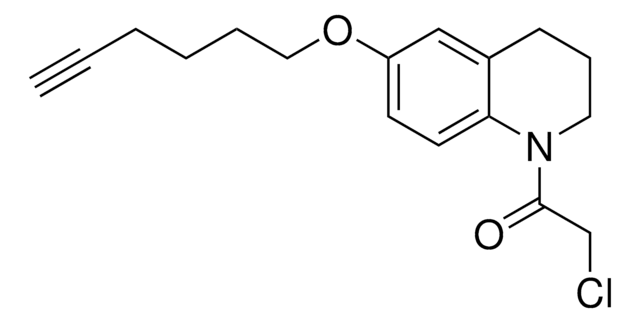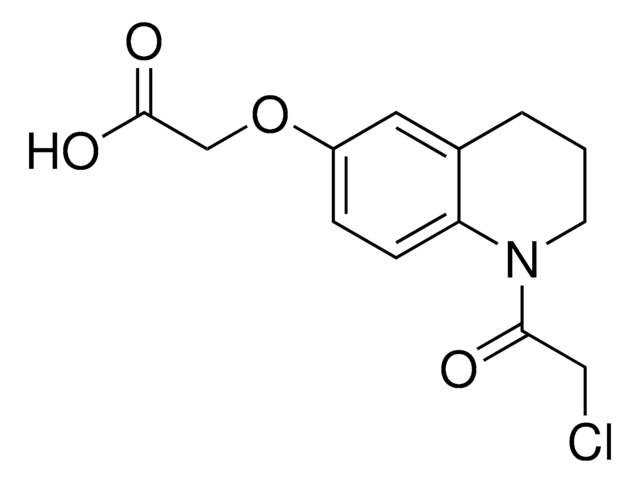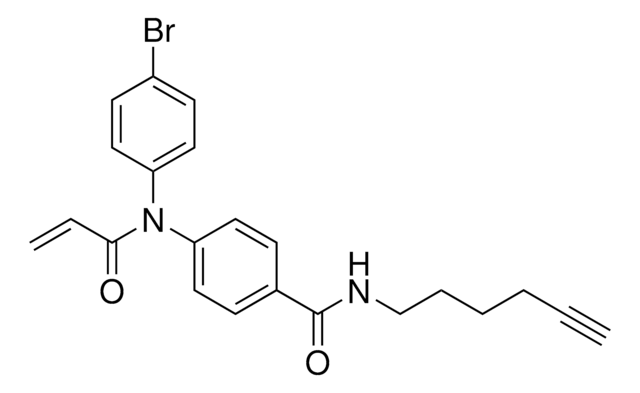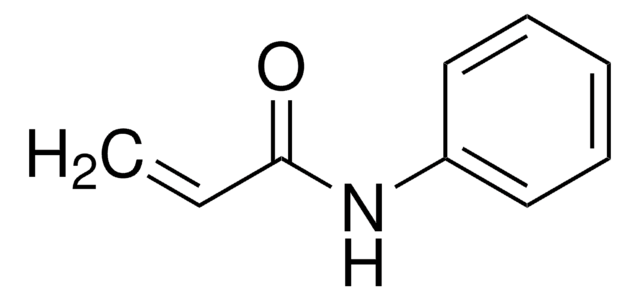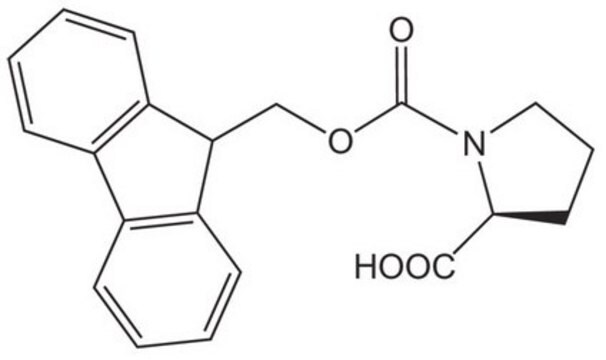추천 제품
Quality Level
분석
≥95%
양식
(Powder or crystals or solid or chunks)
저장 온도
2-8°C
SMILES string
Brc1ccc(cc1)N(c2ccccc2)C(=O)C=C
InChI
1S/C15H12BrNO/c1-2-15(18)17(13-6-4-3-5-7-13)14-10-8-12(16)9-11-14/h2-11H,1H2
InChI key
WFQQVUPOAKOTGT-UHFFFAOYSA-N
애플리케이션
N-(4-Bromophenyl)-N-phenylacrylamide is a cysteine-reactive small-molecule fragment for chemoproteomic and ligandability studies for both traditionally druggable proteins as well as ″undruggable,″ or difficult-to-target, proteins. This fragment electrophile, or ″scout″ fragment, can be used alone in fragment-based covalent ligand discovery or incorporated into bifunctional tools such as electrophilic PROTAC® molecules for targeted protein degradation as demonstrated by the Cravatt Lab for E3 ligase discovery.
기타 정보
법적 정보
PROTAC is a registered trademark of Arvinas Operations, Inc., and is used under license
관련 제품
제품 번호
설명
가격
Storage Class Code
11 - Combustible Solids
WGK
WGK 3
가장 최신 버전 중 하나를 선택하세요:
Keriann M Backus et al.
Nature, 534(7608), 570-574 (2016-06-17)
Small molecules are powerful tools for investigating protein function and can serve as leads for new therapeutics. Most human proteins, however, lack small-molecule ligands, and entire protein classes are considered 'undruggable'. Fragment-based ligand discovery can identify small-molecule probes for proteins
Xiaoyu Zhang et al.
Nature chemical biology, 15(7), 737-746 (2019-06-19)
Ligand-dependent protein degradation has emerged as a compelling strategy to pharmacologically control the protein content of cells. So far, however, only a limited number of E3 ligases have been found to support this process. Here, we use a chemical proteomic
문서
Ligandability describes the propensity of a protein target to bind a small molecule with high affinity. It is a precursor to evaluating druggability, which requires more advanced translational pharmacological effects and drug-like properties in vivo.
Global Trade Item Number
| SKU | GTIN |
|---|---|
| 911798-100MG | 4061841712022 |
자사의 과학자팀은 생명 과학, 재료 과학, 화학 합성, 크로마토그래피, 분석 및 기타 많은 영역을 포함한 모든 과학 분야에 경험이 있습니다..
고객지원팀으로 연락바랍니다.
